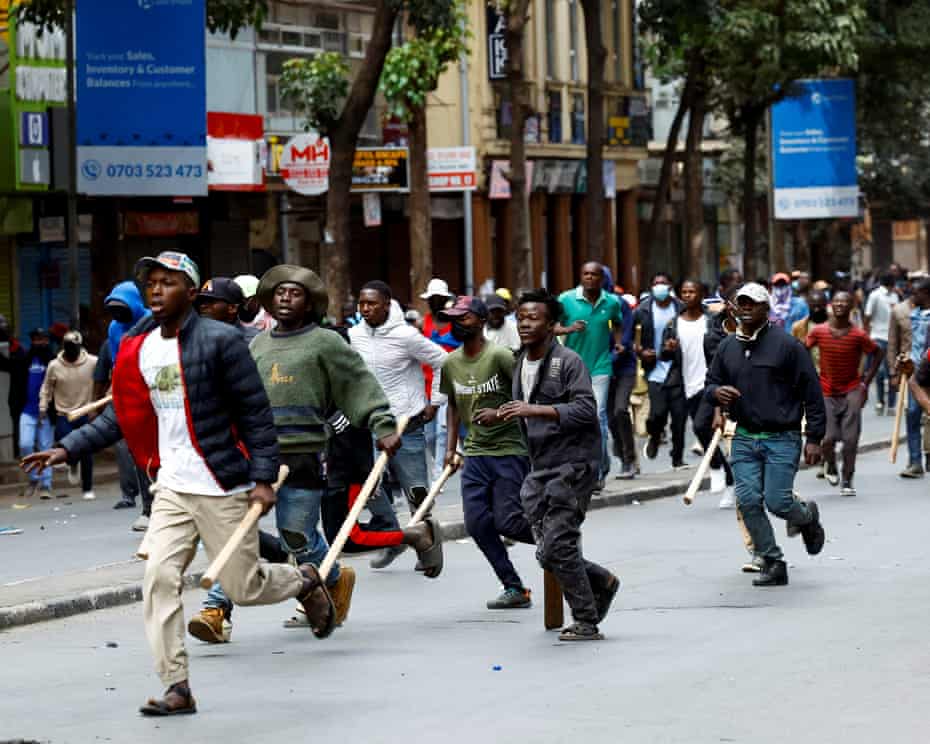Kenyans across the country are preparing for nationwide marches today to mark the first anniversary of the historic storming of parliament, honouring those killed and disappeared during last year’s anti-government protests. While the planned events are being organised as peaceful demonstrations, there are growing fears that the day may descend into violence.
The protests of June 2024, sparked by a controversial finance bill proposing tax increases, claimed the lives of at least 60 people. Many others went missing or were later confirmed dead, fuelling a deeper national reckoning with state brutality and government accountability. Although the demonstrations began peacefully, they escalated after a heavy-handed police crackdown.
Kenya president scraps finance bill
President William Ruto ultimately scrapped the finance bill and reshuffled his cabinet to include opposition figures, pledging to build a “broad-based” government. Despite this, unrest simmered through to September, and public distrust has persisted ever since.
The upcoming anniversary march, described by opposition leaders as a “people’s public holiday”, has been driven by grassroots mobilisation online and on the ground. Young Kenyans and rights activists, many of whom led last year’s protests, plan to hold peaceful processions, candlelit vigils, and digital campaigns using viral hashtags.
In Nairobi, demonstrators are expected to walk towards the parliament and the president’s office, laying flowers and lighting candles in memory of those lost. However, recent events have reignited tensions. The death earlier this month of teacher Albert Ojwang in police custody, after allegedly criticising a senior officer on social media, has provoked fresh outrage. Just days later, another protest turned bloody when a police officer shot vendor Boniface Kariuki at close range.
These incidents have renewed public scrutiny of police brutality, an issue long central to protestors’ demands. Alongside this, grievances over corruption, youth unemployment, rising living costs, and government excesses remain unresolved.
“The trust deficit between young people and the government has only widened,” said political analyst Mikhail Nyamweya. “Despite promises of reform, the Kenyan youth view the state as unresponsive and quick to suppress dissent. Continued human rights violations have solidified the belief that little has changed.”
Adding to protesters’ concerns are allegations of hired goons infiltrating past demonstrations to intimidate, beat, and rob peaceful marchers. These tactics have heightened fears of violence during Wednesday’s events.
Police have urged demonstrators to remain peaceful. “Let’s restrict ourselves to what we call ‘peaceful demonstrations’,” said Nairobi regional police commander George Seda. “Let’s not interfere with others who may not be part of the demonstrators.”
However, some government allies have taken a more threatening tone. David Ndii, chairperson of Ruto’s Council of Economic Advisers, posted on X: “You allow yourself to be weaponised by self-seekers, there’ll be casualties.” When challenged, he warned another user to “say your goodbyes before you leave home.”
Human rights groups have called for unity and caution. “Let’s stand together as brothers and sisters tomorrow,” said activist Hanifa Adan. “May the Lord shield us from violence, political interference, and most of all, from the brutality of bloodthirsty police.
In a joint statement on Tuesday, envoys from 12 countries, including the US and UK, reaffirmed the right of all Kenyans to peaceful assembly and expression. “We urge all parties to facilitate peaceful demonstrations and to refrain from violence,” the statement read.
The Kenya Conference of Catholic Bishops also weighed in, calling for non-violence and condemning the excessive force used during past protests. “A society that instils fear in its youth for simply speaking out is a society walking away from justice,” said Nyeri Archbishop Anthony Muheria.



